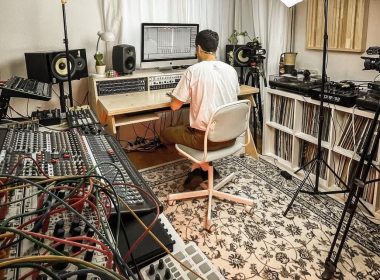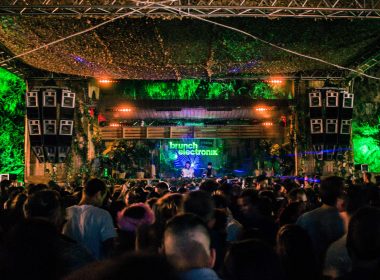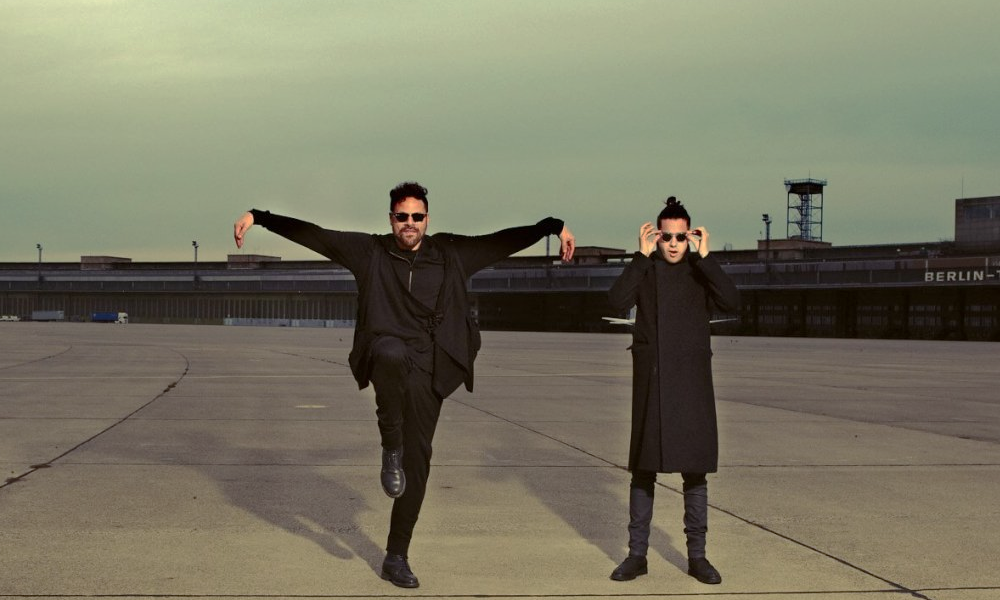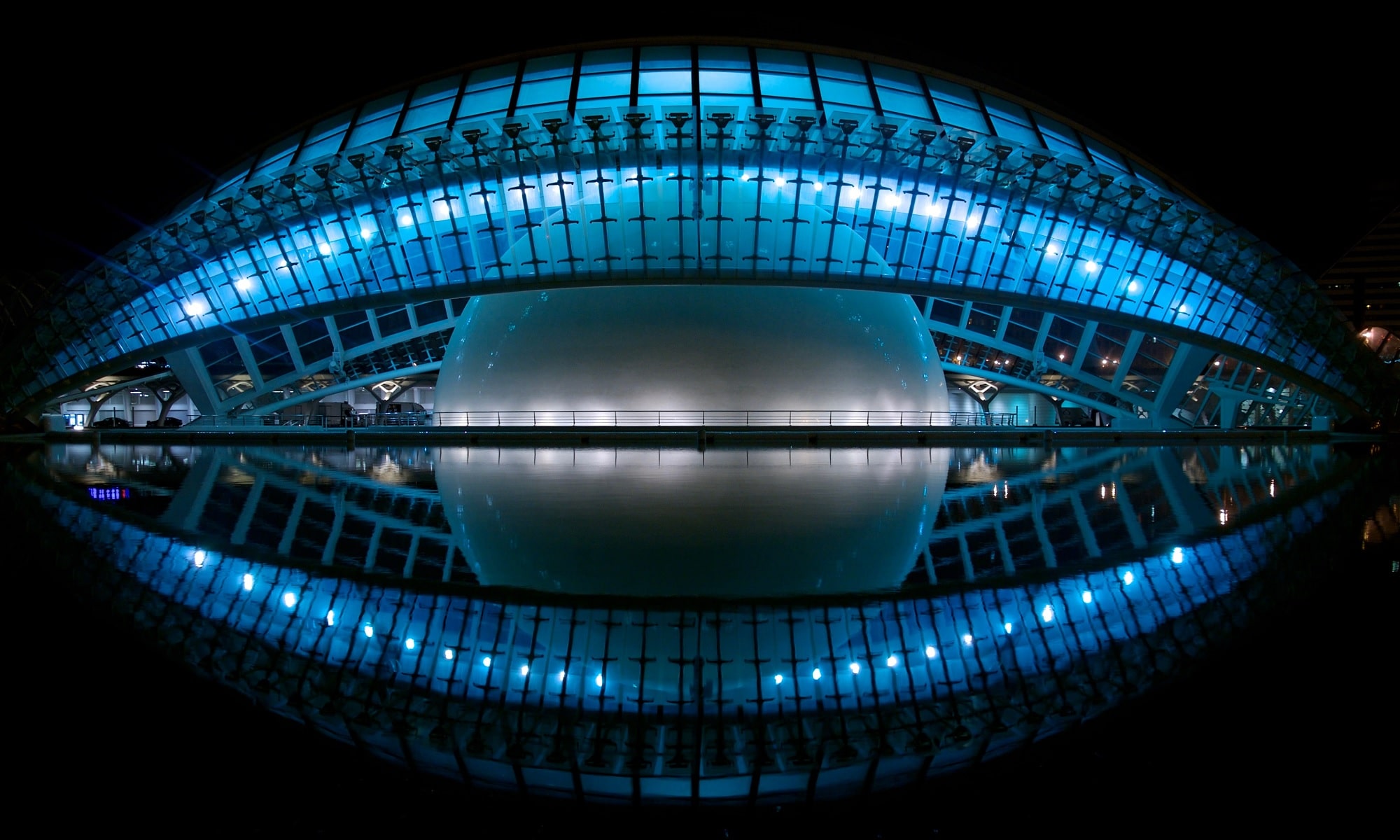Dressing in total black has its advantages. You appear more thin, intellectual, fascinating and mysterious. Of course, someone can argue that after a while you can get bored or, even worst, depressed for choosing this color. Nevertheless, who are we to judge? And who are we to argue whether black can be considered a color or not?
However, we can for sure affirm that in the course of these last years, the clubbing realm has seen not only a lot of clubbers but also a lot of DJs wearing only black clothes. Coincidence? Probably not.
It must be a fashion trend, a social rule that someone has initiated some time ago also because in the 90s and after the first years of the new millennium, clubbers were used to dress in colorful clothes, appearing like small dancing rainbows on the dance floor.
https://www.youtube.com/watch?v=J4Raz4mxnto
Each music genre has influenced the way the people have been used to dress, from the slick back hair cut, white t-shirts and leather jackets during the rockabilly wave to the colorful mohawk haircut and the jackets with studs and patches during the punk era.
However, like the social construction that we build together and for which we are attracted together, there is always a motivation behind.
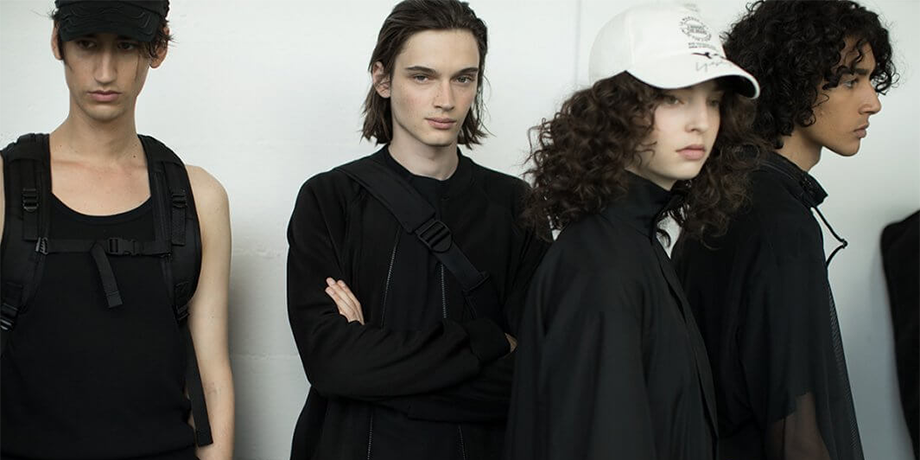
Chandler Shortlidge wrote more about this phenomenon in his article on Pulse Radio, and here we share some interesting stuff.
It’s an eye-opening window into what clubbers looked like back then—even perennially black-clad techno titan Richie Hawtin wore white in the DJ booth. The crowd, too, are similarly unrecognisable, dressed in all manner of colourful regalia and styles, a far cry from the VIP wannabes who grace today’s Ibiza dance floors, copies of a copy of the DJ and their hangers on. More than their 2017 replacements, these 2006 clubbers look “normal,” for lack of a better word, like they’re trying much less hard to fit in, appear rich or have an “image.” Put simply, they look like they’re there to have fun instead of be seen looking cool to the “right” kind of music.
Black is a statement. It gives you a “look,” and fairly uncomplicatedly. It says you’re damn serious about life, and have neither the time nor the inclination to faff about with silly colour combinations and patterns. Nobody should ever mistake you as the type of person to listen to anything but dark music played in dark rooms with unsmiling people who want their clothes to be the physical extension of the abstract ideas that techno brings to the dance floor. And for the most part, it works. Nobody sees a monochrome press shot of two dudes dressed in tight black tee shirts and skinny jeans staring forlornly away from the camera and thinks, “maybe those guys play lots of disco!”
But most importantly, wearing black tells people you’re “in the know.” And in a subculture like dance music, where superior knowledge is traded like cultural capital, being in the know is basically everything. Showing up to an after party as the only dickhead dressed in yellow screams “I’m new here,” which won’t exactly earn you a surprise invitation into the green room for a cheeky one with the cool kids.
So why stand out when you can fit it? Why do colour when you can do black and white so everyone easily understands your message and branding without actually having to listen to your music? Why risk alienating hoards of punters who want more of the same images, sounds and ideas? It’s just not worth the risk. Or maybe you actually can still play and dance to great thundering techno without looking like an undertaker’s hip young apprentice, and there’s just too few people willing to try. Which seems pretty damn silly when you stop and remember that we’re talking about a scene that was born celebrating diversity, individualism, and creativity.
In the end, your fashion choices are yours and yours alone. And if you still want to wear back all the time, by all means, do what makes you happy. But nobody said you have to, and the party will still be just as fun if you decide to show up looking a little different than everyone else.
In the clubbing scenario, therefore, wearing black clothes can be a synonymous of belonging, aggregation and participation and not only a fashion push. Nevertheless, for the music we are all the same, craving for that vibrant sensation, and it is sure that dressing in total black is not gonna change that magical experience.
So, choose any clothes that you want with any color that you prefer. Create dubious combinations that will hurt the eyes of those who will see you on the dance floor. At the end it is only the music that matters.





